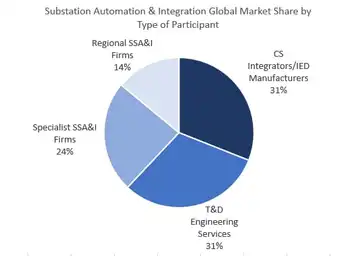Trilliant to supply smart meters to CMP
REDWOOD CITY, CALIFORNIA - Central Maine Power, the state's largest electric utility, has selected a California company to supply 620,000 so-called smart meters to be installed by early 2012, reducing costs for CMP and allowing consumers to monitor their power consumption, the companies said.
Redwood City-based Trilliant Inc. said the nearly $200 million smart meter program will be funded by CMP with $96 million in federal stimulus money and matching funds from CMP's corporate parent, Iberdrola USA.
The electric meters will be connected to a high-speed secured network, enabling CMP to read the meters remotely and to eliminate meter readers. Customers would be able to monitor their power consumption in real time, and the technology could open the door to different pricing plans down the road.
"We have ambitious goals to improve our service and deliver value for customers through our smart grid network," said Sara Burns, CMP president and chief executive officer.
Trilliant said it will provide software to manage the smart grid network. It's partnering with General Electric and Landis+Gyr to provide the meters and with IBM to provide networking software, the company said. Workers will begin installing the meters this fall, officials said.
Smart meters are on the front line of plans for an advanced power grid because they can communicate with utilities and respond to constantly changing energy prices.
All told, the U.S. Department of Energy has awarded $230 million in federal stimulus funding — matched by the recipients — for smart meters in New England.
For CMP, smart meters will bring an immediate cost savings by eliminating the need for meter readers, who drive 2 million miles a year to check meters, said CMP spokesman John Carroll. The system also could speed CMP's storm response and eliminate the need for a site visit when service is turned on or off, he said.
The smart meter plan was opposed by the International Brotherhood Electrical Workers because it calls for layoffs of 141 full- and part-time employees, including 85 meter readers. The union contends stimulus money shouldn't have been used for something that has the potential to eliminate jobs.
CMP and the union are currently in negotiations over terms of the layoffs, said Cynthia Phinney, business manager for Local 1837 in Manchester.
For CMP customers, smart meters will enable them to monitor their power consumption in real time for free via the Web or through additional equipment available for purchase, allowing them to educate themselves and alter their habits to reduce consumption and save money, Carroll said.
Eventually, a combination of smart meters and smart grid improvements could open the door to new pricing formulas. For example, consumers in the future could opt for dynamic pricing in which rates vary by the time of day, or for demand-response programs in which appliances could be disabled remotely by utilities.
Dick Davies, Maine's public advocate, said the technology holds great potential. But he said CMP must work with regulators to avoid complaints like those levied against Pacific Gas and Electric Co., which last spring acknowledged some customers in its smart meter program may have received inaccurate utility bills.
"The technology has some real potential but if you don't go about implementing it in the right way, there's the potential for real problems," Davies said.
CMP said the project wouldn't have taken place without federal stimulus dollars. In the past, CMP sought to upgrade electric meters, but regulators said it would've been too costly.
Related News

The Great Debate About Bitcoin's Huge Appetite For Electricity Determining Its Future
NEW YORK - There is a great debate underway about the electricity required to process Bitcoin transactions. The debate is significant, the stakes are high, the views are diverse, and there are smart people on both sides. Bitcoin generates a lot of emotion, thereby producing too much heat and not enough light. In this post, I explain the importance of identifying the key issues in the debate, and of understanding the nature and extent of disagreement about how much electrical energy Bitcoin consumes.
Consider the background against which the debate is taking place. Because of its unstable price, Bitcoin cannot serve…




